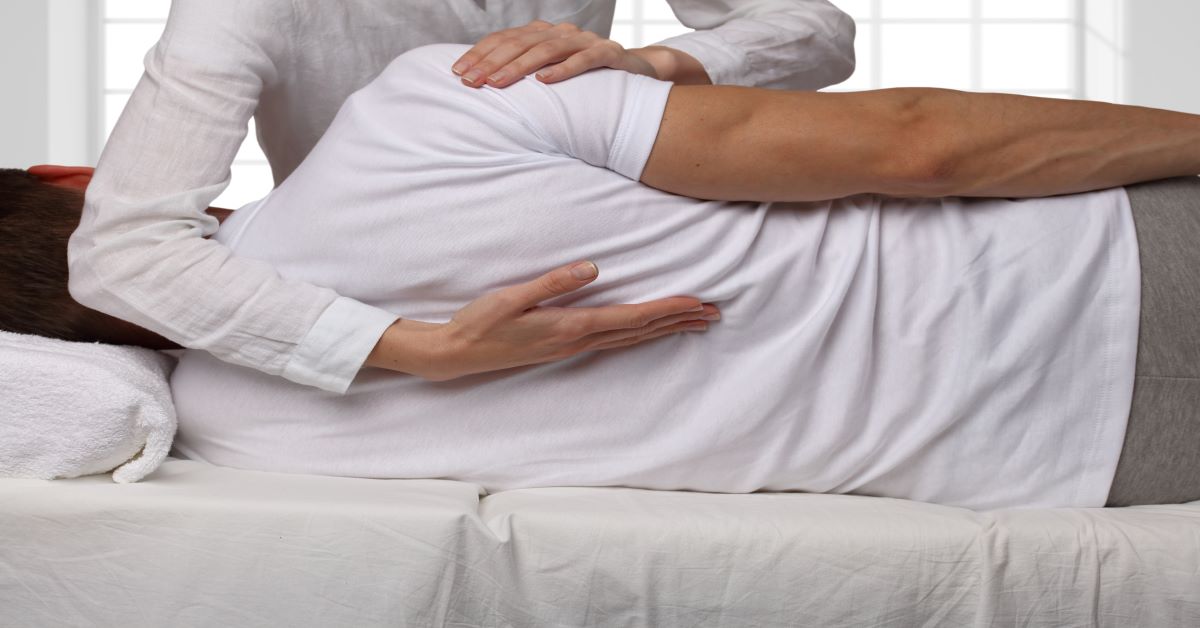According to statistics, more than 30 million Americans have complained about back pain at some point in their lives. An estimated 80% of the population is predicted to experience this at some point in the future. For many, the pain is a result of poor sleeping habits. Fortunately, you can adopt simple practices to ensure your back stays healthy and pain-free while sleeping. This blog post recommends the best sleeping positions for your aching back according to information from the national sleep foundation and when it might be time to schedule a chiropractic adjustment.
Sleep on your side in the fetal position
If you cannot lie on your back because of a herniated disc, try sleeping in the fetal position. This means lying with one leg bent and drawn up toward your chest while the other is stretched out straight behind you. You should then be able to rest both arms by your side or at either end of where you are lying. For extra comfort, place a pillow between your legs and another one between your arms. Herniation occurs when a part of a disc protrudes from its usual sleeping position, causing nerve discomfort, weakness, and other symptoms. Opening up the gap between your vertebrae by curling your body into a fetal sleeping state allows for greater space, easing back pain.
Sleep on your back with a pillow under the knees
Some people find sleeping on their side uncomfortable as it puts too much pressure or strain on their lower back. If this is you, try placing a small pillow underneath your knees to relieve some of that stress and help take the weight off your spine. This way, it is still possible to sleep on your back while avoiding straining your lower back. It will help maintain a healthy back while increasing the likelihood of better sleep quality.
Prop yourself up with pillows
If you can’t lie down or side-sleep for any reason, try proactively raising the top half of your body by placing a firm pillow under your head and another one under your knees. This will put the rest of your body in a neutral sleeping position and doesn’t make your back pain worse when you fall asleep. The pillow should support the head and neck without putting pressure on them or forcing them to stretch unnaturally.
Lie on your stomach with a pillow beneath your abdomen
While stomach sleeping is not recommended, some people might find it easier than other sleeping positions. If this is you, try placing a pillow under your abdomen before getting into the fetal position to minimize back pain and discomfort while resting. This is especially important for people with degenerative disc disease. You should also place another one between your legs for further comfort and support.
Use a firm mattress
Using pillows to prop yourself up slightly when sleeping may not be enough to alleviate back discomfort. Not all mattresses are created equal, and some can be too soft or too firm for some sleepers. For lower back issues, use a firm mattress so that your body weight isn’t pressed against the bed in one concentrated area. This will decrease pressure on your back in the long term.

What are the major causes of back pain?
Various factors can contribute to back pain. Some of these include:
Poor sitting habits
Sitting improperly at work or spending too much time hunched over an instrument without taking breaks will exacerbate back pain. It’s important to engage in regular exercise that works out all of your major muscle groups to avoid becoming too passive over time.
Physical activity
Lifting heavy objects with bad form will put unnecessary pressure on your lower back, so be sure to bend at the knees when picking up something heavy. Otherwise, you could injure yourself by putting excess strain on certain parts of your spine.
Improper sleep positions
Sleeping on your side with a pillow that’s too high or low can cause discomfort and lead to back pain. Try using pillows under your knees if you’re unable to sleep comfortably in any other sleep position.
Stress
Chronic stress can lead to back issues, so try taking some time each day for yourself. This could include anything from practicing yoga or meditation to staying hydrated throughout the day.
Tired of Unending Back Pain?
If the pain in your back is preventing you from enjoying life, It might be time to visit us at Yoder Chiropractic. We offer several treatment options for people struggling with chronic back pain, including chiropractic care and massage therapy. Give us a call today to learn more about our chiropractor Vancouver WA services!
FAQ
When should I seek medical treatment for back pain?
While there are many causes for lower back discomfort and other symptoms associated with it, these can usually be managed at home without the need for medical intervention. However, if the pain continues to get worse after you’ve tried some basic self-care methods or persists for more than a few days at a time, it’s best to seek help from an expert as soon as possible for pain relief.
Should I sleep on my back or side?
Sleeping on your back is the better option as it maintains your spine’s natural curve. However, side sleeping may also be a good sleeping posture given that it offers health benefits such as reducing snoring, easing pressure on your heart, and healing obstructive sleep apnea.



